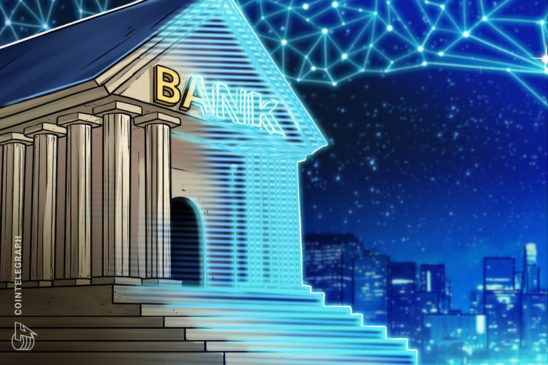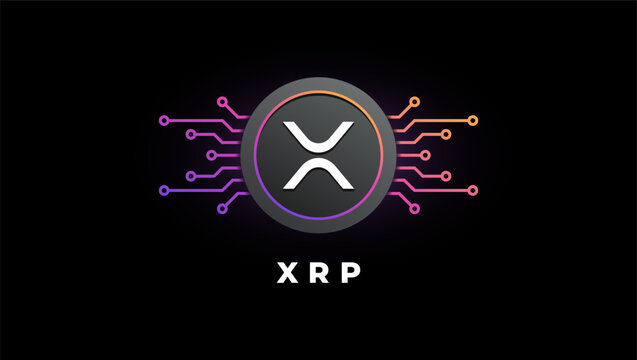Reports that legacy banks like BNY Mellon and Deutsche Bank are becoming active in the cryptocurrency space, including through custody services, should come as welcome news for crypto investors.
Lost or misplaced private keys, after all, are a bane of the crypto world — just recall the Welshman who lost 7,500 Bitcoin (BTC), worth about $400 million today, when he landfilled his PC’s hard drive, forgetting it was the sole repository of his private key. Meanwhile, traditional banks are society’s safekeepers par excellence, so maybe they can improve the crypto user experience with regard to private keys at the very least.
But if major financial institutions are indeed getting involved with cryptocurrencies — and not just in the custody area, as investment bank Morgan Stanley signaled on Feb. 13 a future investment in Bitcoin — why now? Is it just the soaring price of Bitcoin? Or has the evolving blockchain/cryptocurrency industry reached a new level where it’s acceptable even to habitually cautious depository institutions?
It appears to be a confluence of factors. In the summer of 2020, the United States Office of the Comptroller of the Currency issued an interpretive letter permitting banks to secure their clients’ digital assets, “including holding unique cryptographic keys associated with cryptocurrency.” This led to “a dramatic increase in demand and direct inquiries from banks,” Pete Najarian, chief revenue officer at BitGo — a cryptocurrency custodian — told Cointelegraph.
Meanwhile, the recent surge in crypto markets has attracted more traditional big-time investors who expect institutional-grade security for their digital assets. “There is real demand from end users and that is absolutely driving the legacy infrastructure toward participation in these markets,” added Najarian.
The current interest from banks has three main drivers, said Nigel Green, founder and CEO of deVere Group, an independent financial advisory organization. He told Cointelegraph: “The first is to meet demand from their institutional clients; the second is that it is becoming increasingly apparent that cryptocurrencies are the future of money; and third, is the Fear Of Missing Out or being left behind.”
Tobias Tenner, associate director and head of digitalization at the Association of German Banks, told Cointelegraph that the skyrocketing price of Bitcoin has captured German banks’ interest, as has a new regulatory framework implemented in January 2020 that cleared the way for banks to act as crypto custodians. “Banks could [soon] offer custody, trading and probably advisory services,” he said.
Are banks up to the task?
But are traditional banks really ready for the cryptoverse? Can they deal with its volatility, hackers and evolving technology? Pablo Agnese, lecturer in the department of economy and business organization at UIC Barcelona, told Cointelegraph: “I think they [the banks] are learning and trying to find their role in this ‘brave new world.’ History however proves that the traditional banking sector is not precisely one prone to substantial technological breakthroughs.”
Bryan Routledge, associate professor of finance at Carnegie Mellon University, told Cointelegraph that crypto custody is not that different from what legacy banks are doing now and have been doing for years. Storing a public and private key pair is important, “but it’s not that difficult,” or shouldn’t be for most banks.
Legacy institutions would also have their business reputations at stake should they enter the crypto arena, which might bring comfort to new users who might otherwise be wary about dipping a toe into the crypto waters. Can banks manage the challenge? “Absolutely,” Perianne Boring, founder and president of the Chamber of Digital Commerce, told Cointelegraph, adding:
“As more and more companies and institutions add cryptocurrencies to their balance sheets, the demand for highly secure custody services grows. Large holders require robust multi-authentication institutional crypto-asset custody solutions and traditional banks are well positioned to provide these.”
Will banks “white label” their services?
If so, could this come at the expense of crypto-focused firms like BitGo or crypto exchanges like Gemini that also provide custody services? “We believe there is room for both traditional financial services companies, as well as crypto native companies,” answered BitGo’s Najarian, who sees new opportunities for collaboration with traditional banks.
Large institutions recognize that crypto custody is a “complex and highly-specialized” endeavor that “revolves around securing a private cryptographic key required to sign transactions,” and many will choose to engage specialty firms like BitGo as subcustodians while wrapping the custody service in the bank’s brand, a process sometimes referred to as “white labeling.”
What about the time frame — could legacy banks, or at least some of them, become major players in cryptocurrency custody, trading and/or asset management over the next year or two? “Yes,” according to Boring:
“The market for custody services is simply becoming too big for global banks to ignore. Already we see [Singapore’s] DBS and [the United Kingdom’s] Standard Chartered have launched custody solutions for digital assets, and we expect more banks to respond to the growing demand for custody from their clients who add digital assets to their balance sheets and portfolios.”
“I think it is almost inevitable that global banks become major players in the crypto ecosystem as digital currencies become ever-more dominant in the wider global financial system,” said Green. “In an increasingly digitized, tech-driven world, large banks will have no choice but to support digital, borderless currencies. They will need to adapt to survive.”
Tenner told Cointelegraph that global banks could be a big player in the business, provided they embrace euro-denominated crypto tokens — i.e., a “programmable Euro” — in accordance with the Association of German Banks’ 2020 position paper, though “It’s premature to foresee how strong a role banks could play.” For now, the crypto-asset business remains a niche product in bankers’ eyes, Tenner added.
Risk or opportunity?
Clearly, not all banks are ready to charge in. When asked in a 2020 survey by the Royal United Services Institute and the Association of Certified Anti-Money Laundering Specialists if they consider the use of cryptocurrency as a risk or opportunity, only 19% of financial institutions said that they viewed crypto as an opportunity.
By comparison, more than three-quarters (80%) of cryptocurrency industry respondents viewed crypto as an opportunity. When asked about specific cryptocurrency risks, the financial institutions identified money laundering as the most prominent risk (cited by 88% of respondents), followed closely by the “use of cryptocurrency on the dark web” (87%) and the “use of cryptocurrency for procurement of illicit goods and services outside the formal financial system” (87%).
Najarian, for one, deems these worries about crime and illicit goods as somewhat overdone. “We do not believe there is greater criminal risk in holding crypto vs. other assets. Statistics have shown that the volume of illicit or suspicious activity involving crypto is much smaller than that of traditional finance.”
With respect to the study, Kayla Izenman, research analyst at the Royal United Services Institute, told Cointelegraph: “It’s worth remembering that financial institutions are likely to view crypto as a risk in terms of compliance, but equally will see the opportunities from an investment perspective.”
She went on to add that the survey also asked financial institutions about crypto “use cases,” both present and future, and “They ranked investment as the top use case in both answers, but indicated day-to-day payments would be more prevalent than illicit purposes in the future. So perhaps the future is closer than we thought.”
When asked if traditional banks really understand the criminal risks in holding crypto, Izenman answered: “They’re likely to be much more cautious at the start of their crypto journey than virtual asset service providers originally were.” Her sense is that banks are well aware of the potential pitfalls: “In fact, the reason it took this long in the first place to get here is because they do know what they’re getting into, and are worried about it.”
Meanwhile, some of the world’s prominent legacy banks still appear to be sitting on the fence. JPMorgan Chase, for example, will get into Bitcoin “at some point,” co-president Daniel Pinto said recently, adding that current crypto demand on the part of customers “isn’t there yet.”
“Banks will have to recycle themselves”
Agnese told Cointelegraph: “I keep thinking that banks and cryptos are NOT compatible as the latter implies complete decentralization of ‘banking,’ and traditional banking is anything but decentralized.” Moreover, traditional banking is a historically protected sector that has always fought to maintain its privileges — though, “sooner or later banks will have to recycle themselves and offer something of value. Crypto custody might as well be the alternative” because it’s like what banks used to do with gold and other assets.
Routledge said that it isn’t really that surprising that some big banks are beginning to invest significant money into the crypto space. The mere fact that Bitcoin, the first cryptocurrency, is worth anything “more than zero” after 12 years in existence — i.e., that it has survived — is a “remarkable” development. It shows that decentralized finance is working, and banks now want to be part of it, he told Cointelegraph.
In sum, “We are at a critical tipping point now,” Boring informed Cointelegraph, “with more and more diversified financial service offerings being launched by digital asset companies, including crypto retirement plans, lending services, high yield savings plans and custody services.” She went on to say further:
“While the foundational technology itself becomes increasingly robust, we see 2021 as an explosive year for the expansion and rollout of the services that have grown out of technology investment.”




